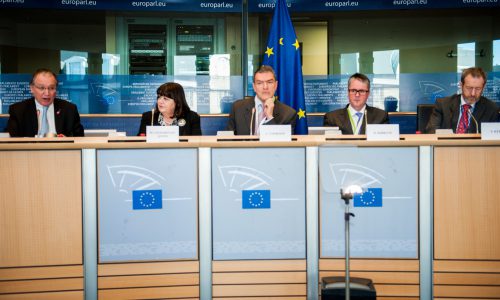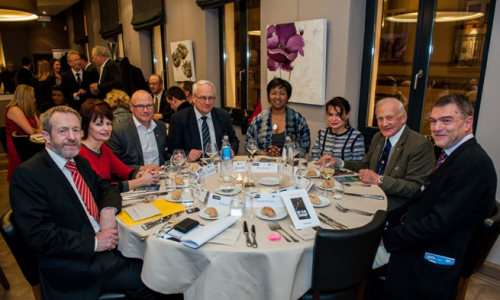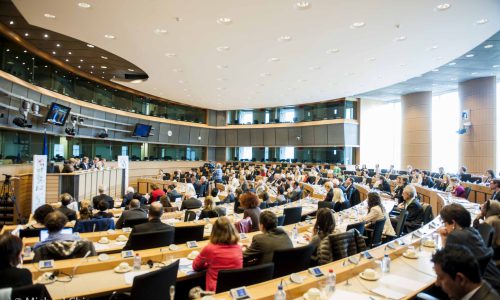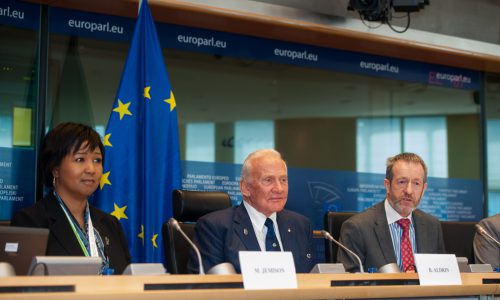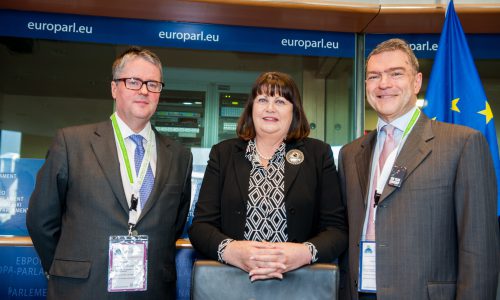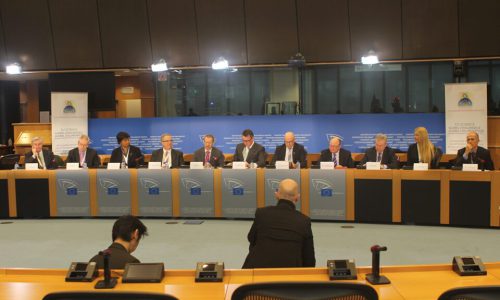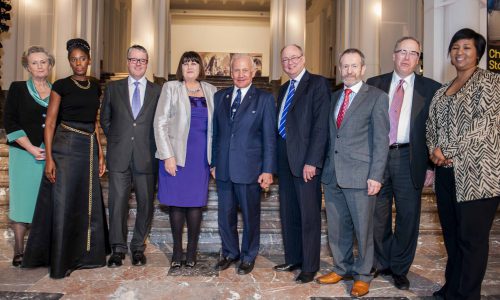Who we are
From Euro-Parliament Launch to Global Challenges Champion: Our Science Summit Story
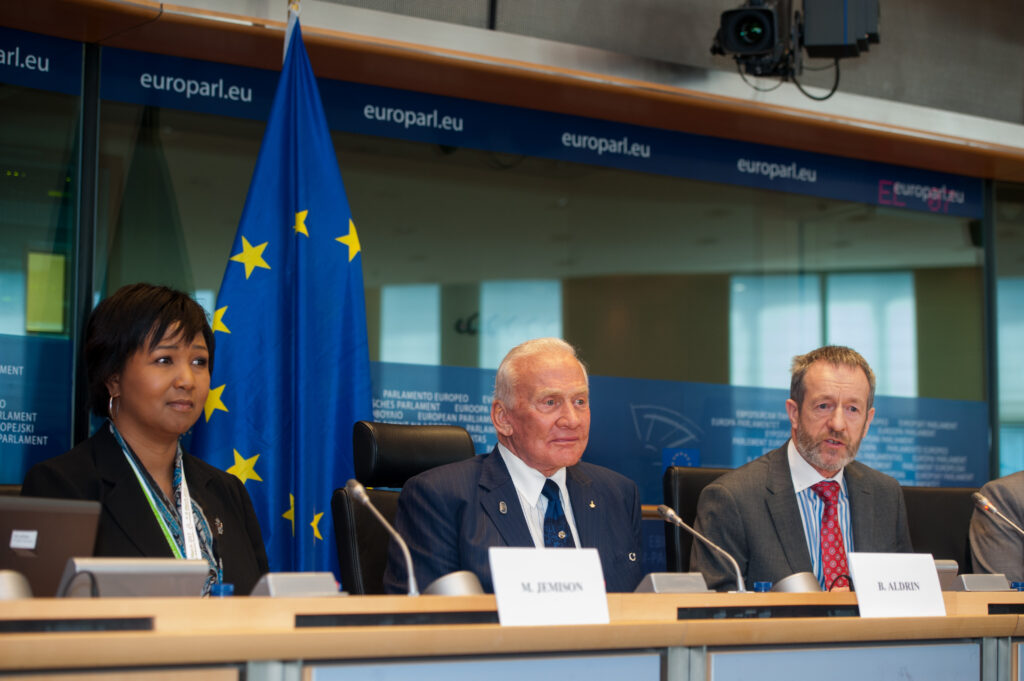
From EU Gathering to Global Stage: The Science Summit's Evolution
The Science Summit has is origins in the Global Science Summit which was hosted by the European Parliament under the Chairmanship of Sean Kelly MEP in 2013.
The Summit keynote speech was delivered by Buzz Aldrin, the second person to land and walk on the Moon. Watch the interview with Buzz Aldrin at the European Parliament.
The Summit was also addressed by Mae Jemison, the First Black Woman to travel into Space and the first Black female Commander of the Space Shuttle. The Summit was the largest event every to take place in the European Parliament.
The 2013 Summit was launched by Ireland’s Prime Minster, An Taoiseach Enda Kelly.
From Brussels to Virtual: The Science Summit Adapts
2014 was marked by ISIS attacks in Brussels and the bombing in 2016 of Brussels Airport and Metro Station put a halt to large events in the European Parliament.
The Summit transferred during the UN General Assembly in NYC with a series groundbreaking meetings to bring science to the center of the UN Sustainable Development Goals. The Summits in 2019, 2020 and 2021 were impacted by Covid and moved online.
2022 allowed people to come together again: the Science Summit during UNGA77 comprised 400 sessions with 1620 speakers: around 35% of sessions were hybrid with meetings taking place in NYC.
The Science Summit traces its origins to the Global Science Summit hosted by the European Parliament in 2013
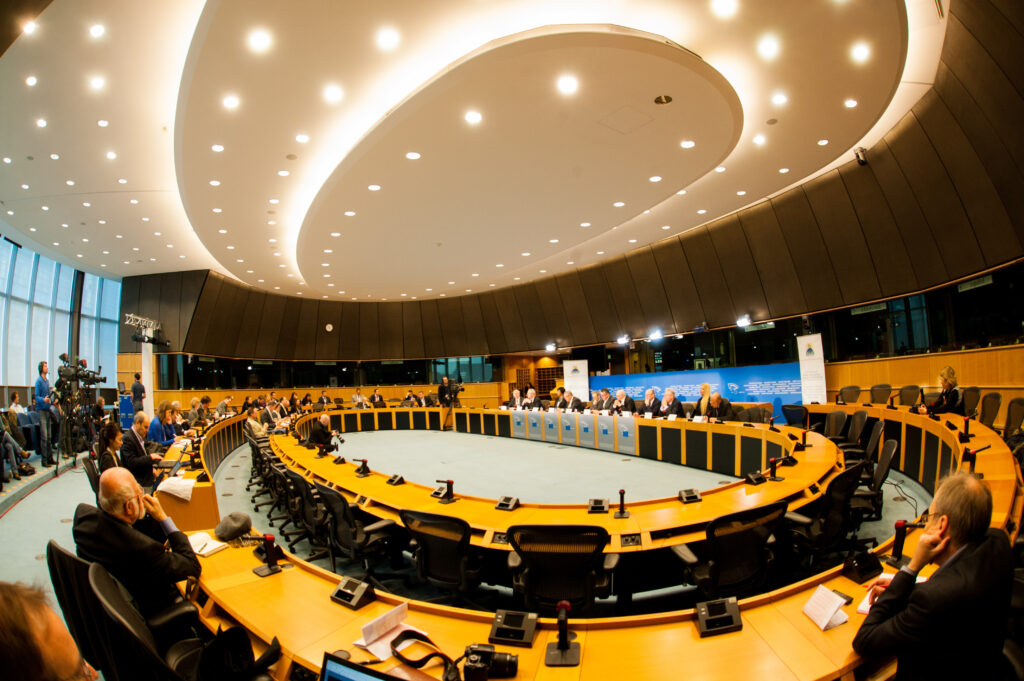
Bringing Science and Innovation for Global Challenges
The Science Summit is convened by ISC Intelligence in Science, based in Brussels, Belgium and Valencia, Spain. ISC works with partner organisations to create an enabling environment for science collaboration.
Our understanding of policymakers and policy-making at the global and regional levels means we have strong intuition on the interaction between regulation, funding, programming, and stakeholders that are necessary for science to contribute to global challenges.
Science Serving the 2030 Agenda: Global Alignment for Sustainable Challenges
In recent years, the United Nations SDGs have provided the backdrop against which science plays its role in addressing global challenges.
Increasingly, large-scale research projects, research infrastructures and other capacity-building initiatives are aligned with the global sustainability agenda, including digital transformation and the broader agreement on biodiversity agendas.
Increasing alignment between United Nations level and EU level approaches to solving global problems is evident: this is also happening between and amongst nations.
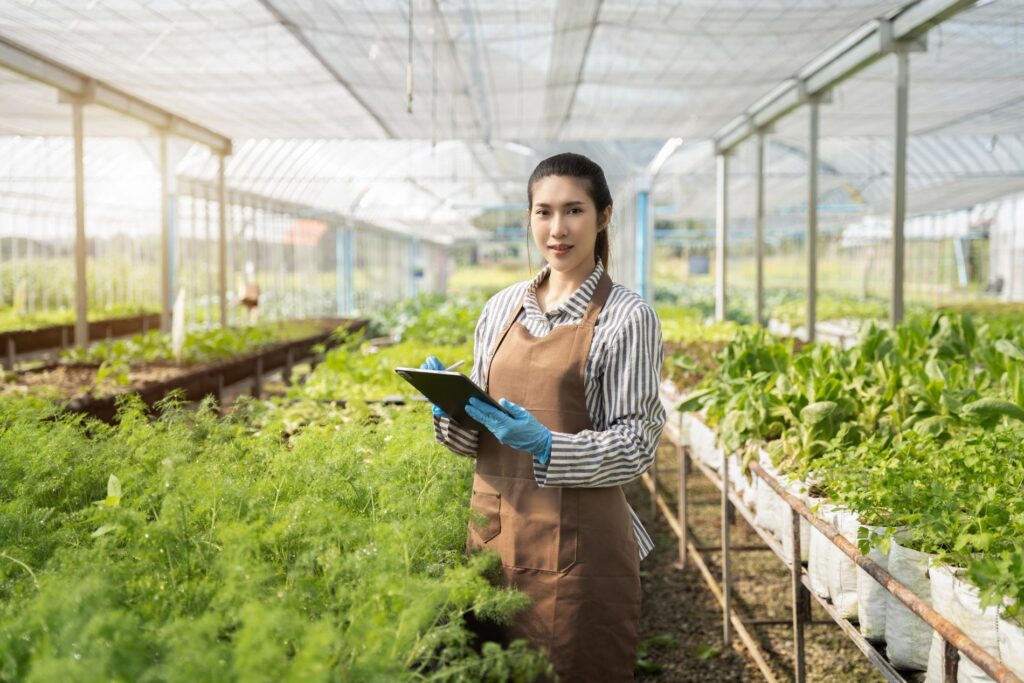
Partners and Advisory Group
Kurt Zatloukal Head of the Diagnostics and Research Center for Molecular Biomedicine, Medical University of Graz, Austria
Paul Rubig Board Member, European Institution of Innovation and technology
Stefano Bertuzzi CEO, American Society for Microbiology, USA
Marleen Temmerman Aga Khan University, Kenya
Triona McCormack Director of Research, University College Dublin, Ireland
Laila Anjuman Banu Bangabandhu Sheikh Mujib Medical University (BSMMU), Bangladesh
Lissa Matyas CIFAR, Canada
Zeinab Osman Nation Centre for Research, Khartoum
George Essegbey Council for Scientific and Industrial Research, Ghana
Christos Arvanitidis LifeWatch ERIC Biodiversity Research Infrastructure, Spain
Swati Mehta Punjab School of Economics, Guru Nanak Dev University, Amritsar, India
Nusrat Shaaban Hanje Member of Parliament, Parliament of the United Republic of Tanzania
Julie Makani Sickle In Africa, Tanzania
Erik Ruth IMiBio Biodiversity Institute, Argentina
Bamidele Ademola-Olateju Commissioner for Information and Orientation, Ondo State, Nigeria
Rahma Rachdi United States Press Agency, Paris
CSIR India
